‘There is a lack of trust’: Stalemate in Jewish, Muslim communities
Relations between the Jewish and Muslim communities have hit their lowest ebb since the onset of the Israel-Hamas war amid deeply held emotions and diametrically opposed beliefs.
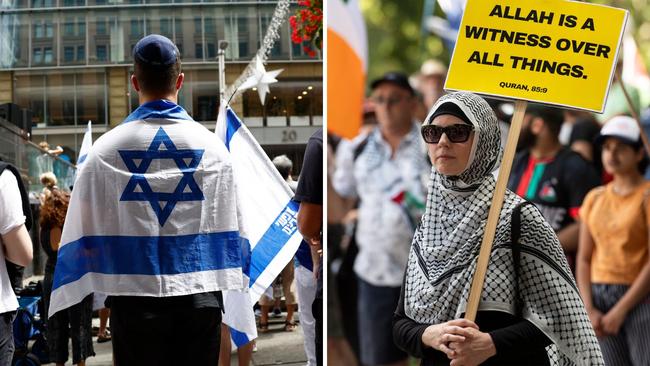
Relations between the Jewish and Muslim communities have hit their lowest ebb, with communication lines and collaboration spaces deteriorating since the onset of the Israel-Hamas war amid deeply held emotions and diametrically opposed beliefs.
It comes after Sydney’s latest anti-Semitic attack in Woollahra on Wednesday and the recent firebombing of Melbourne’s Adass Israel Synagogue – a sharp escalation of rising anti-Semitism that has gripped Australia over the past 12 months.
Some leaders urged the Albanese government to work more proactively to bring leaders together – akin to the NSW government’s Faith Affairs Council, a rare post-war inter-religion success – but others believe relations will only thaw with the passing of time.
One prominent Jewish figure – speaking on the condition of anonymity given the sensitivity of the subject – remains in dialogue with Muslim community leaders, but said that conversations took place away from the public eye.
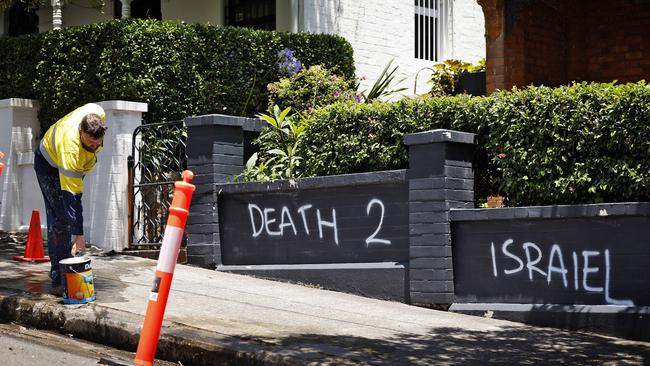
“A few moderates (from the Muslim community) have reopened informal conversations,” they said, adding that they “understood” the “pressures” on Muslim leaders.
“But they can’t be seen to be doing so and that’s been made clear.
“The doors will reopen … the last thing we want to do is embarrass those who are willing to engage in dialogue when it’s hard.”
The firebombing of the Adass synagogue, which is being investigated as a possible terror attack, drew swift condemnation from leading Muslim groups.
The Australian National Imams Council “strongly condemned” the attack and Australian Federation of Islamic Councils president Rateb Jneid said he was “deeply disturbed”, extending the Jewish community his organisation’s “deepest sympathies”.
“Such acts of hatred and violence must be met with a swift and firm response from law enforcement,” Dr Jneid said.
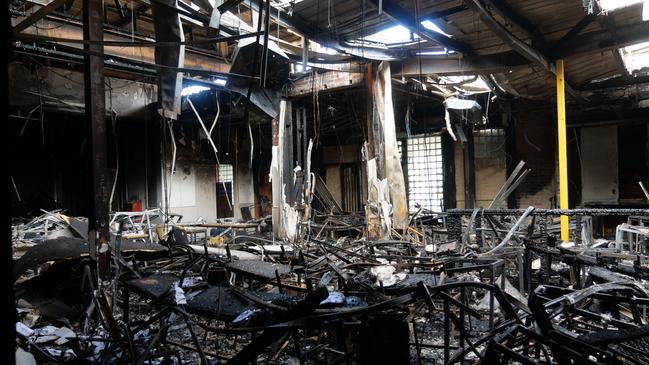
The latest vandalism attack in Woollahra, described by NSW Premier Chris Minns as an “evil” anti-Semitic attack that aimed to “promote fear”, drew less.
But the NSW Faith Affairs Council – a non-binding advisory body to the Minns government, which includes Jewish and Islamic leaders – condemned it as an “act of hatred”.
On Sunday, Mr Minns called Islamophobic “f. k Islam” graffiti in Chester Hill – the suburb is home to a large Lebanese Muslim community – “disgusting and corrosive”, a sentiment echoed by NSW Jewish Board of Deputies president David Ossip, who called the “hateful” vandalism a “bigoted attack”.
Sources described relations at a record low amid polar-opposite views and concerns about community reaction to collaboration.
Privately, and at times publicly, Jewish leaders are frustrated by what they see as a failure of Muslim counterparts to show a united voice against anti-Semitism or condemn hate speech targeting their community.
There is also anger for what they said was failure to unequivocally condemn Hamas’ October 7 atrocities.
Privately, and also at times publicly, Muslim leaders have criticised what they believe is a lack of empathy for the suffering and death toll in Palestine and Lebanon, and what they said was a conflation of anti-Semitism with criticism of Israel.
Since October 2023, there has been little cross-community unity but the work of the Faith Affairs Council has been lauded, particularly during April’s Wakeley terror attack.
It includes Mr Ossip and ANIC president sheik Shadi Alsuleiman, as well as former NSW JBD chief executive, and now Faith NSW co-chairman, Darren Bark and the Ahl Al Bait Islamic Centre’s Ali Al Samail.
In October, the ANIC president and the NSW JBD’s current chief executive jointly welcomed the government’s new religious bullying hotline.
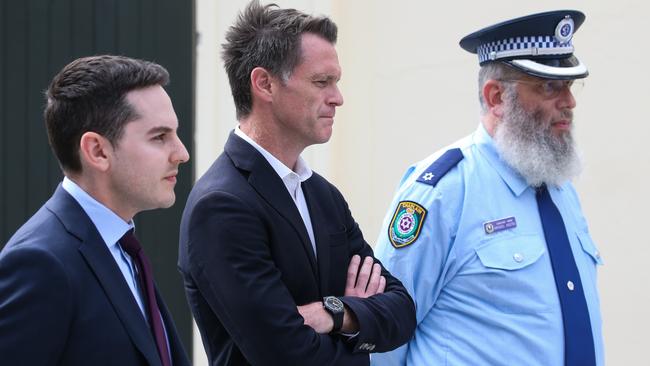
In August, the Executive Council of Australian Jewry slammed “lawless” elements of the settler movement, calling attacks in the West Bank “completely antithetical” to Jewish values, which community leader Jamal Rifi said showed that there “remained common ground”.
But bar a few fringe groups, both communities’ views on the war are diametrically opposed.
One Muslim leader, speaking on the condition of anonymity, said they would get “torched” by their community if they were seen working with or talking to Jewish leaders who were supportive of Israel’s military action in Gaza and Lebanon.
“We’d get crucified … it’s suicide for us,” they said.
“When (a Jewish leader) advocates for what Israel is doing, how could I sit with them?”
The Jewish and the Indonesian-Muslim communities remain on good terms, and there is goodwill with Turkish-Muslim leaders, who last week wrote to the NSW JBD expressing their “solidarity” after the attacks, saying that their “hearts broke” for Australian Jews.
Jewish sources said that there’d previously been co-operation on common interests, like legislation affecting both communities, but that longstanding dialogue sessions between Christians, Muslims and Jews had been in abeyance since October 2023.
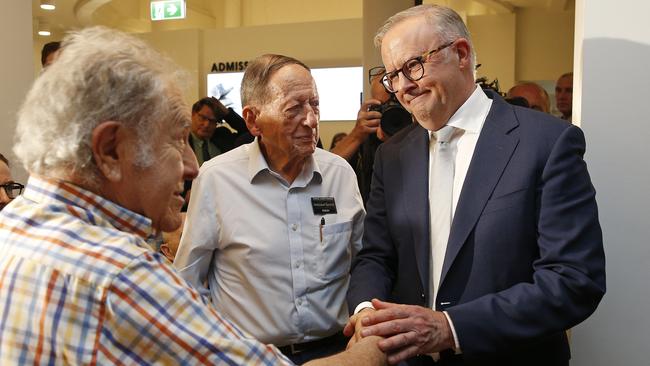
Frustrations were also held with an October 2023 statement by Muslim bodies that failed to condemn Hamas’ atrocities and how that faith’s peak bodies hadn’t directly reached out to their Jewish equivalents after Melbourne’s synagogue attack.
One government source said leaders were ultimately “trying to do what they can for their (own) community”.
“There is a lack of trust and both communities have become inward facing,” this person said, speaking anonymously to maintain relationships, adding that both faiths’ leaders faced “heat” from their communities if they appeared to be working together.
“The Jewish community is under immense pressure and angst. We need to stand beside them.
“And in the Muslim community, you have people seeing (family, friends) suffering in Gaza.”
Other Muslim leaders, however, said relationships between the communities had always been minimal.
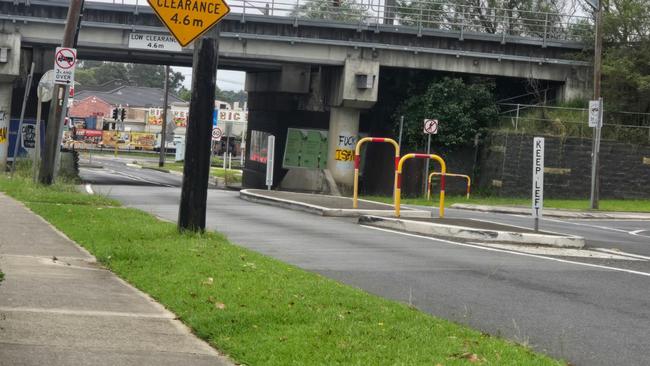
“There hasn’t been an impact (on relations since the war) because there was nothing really there in the first place,” one said.
Muslim leaders made clear that they strongly condemned the synagogue fire and any religious vilification, but said that the finger had been pointed at their community before any arrests were made.
“There are always bad apples in each community and we should work together to isolate them to keep the peace in Australia,” Australian Islamic House president Mazhar Hadid said, adding that attacks on the Jewish community because of anger with the Netanyahu government were wrong.
“We should separate the (conflict) and the (actions) of the Netanyahu government from the Jewish community … I do not understand why anyone attacks that community.
“There is no excuse for any attack on a place of worship, and we should as a united community come together.”
Lebanese Muslim Association secretary Gamel Kheir said there was frustration with politicians who had failed to prioritise interfaith dialogue and appeared to “play communities off one another”, urging for a strong response to the Chester Hill vandalism.
“(We) call on all politicians to publicly condemn this vile act and publicly apologise for stoking the ugly head of racism,” he said, criticising remarks by Senator Dave Sharma last week that called Islamophobia “fictitious”.



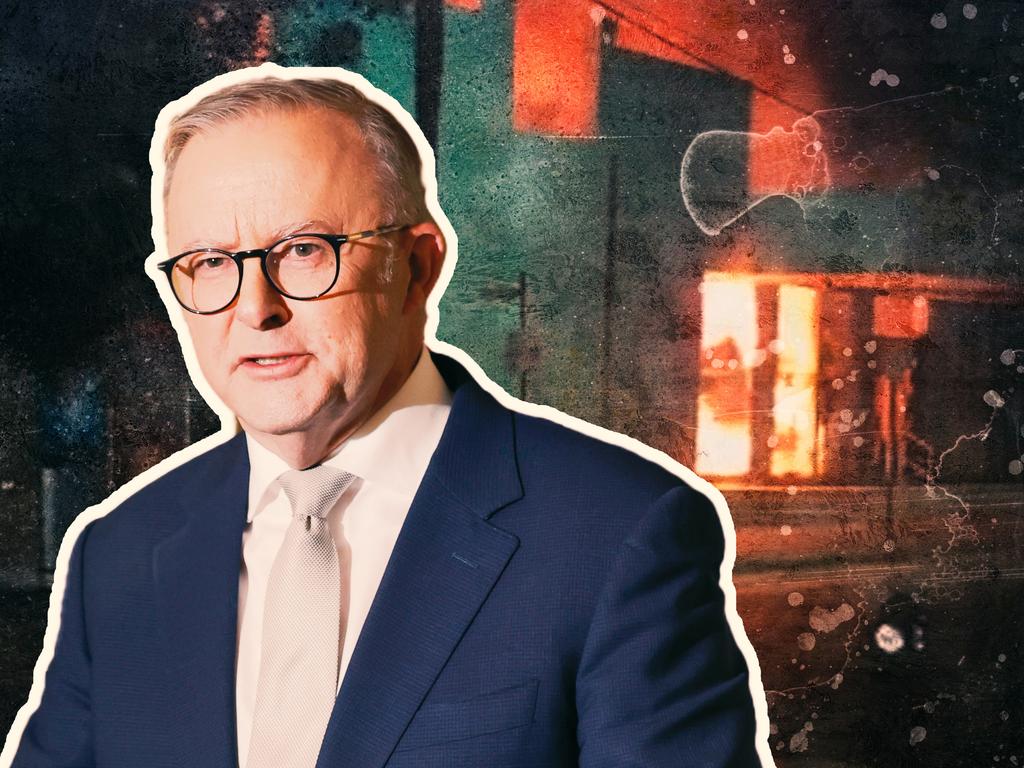
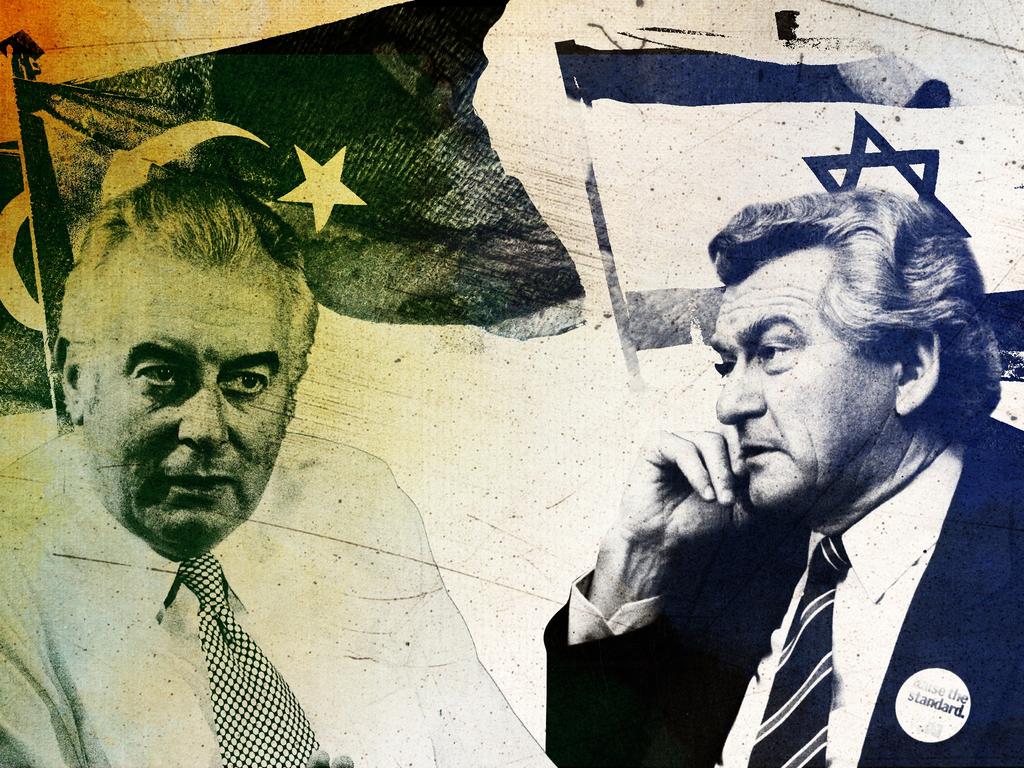
To join the conversation, please log in. Don't have an account? Register
Join the conversation, you are commenting as Logout